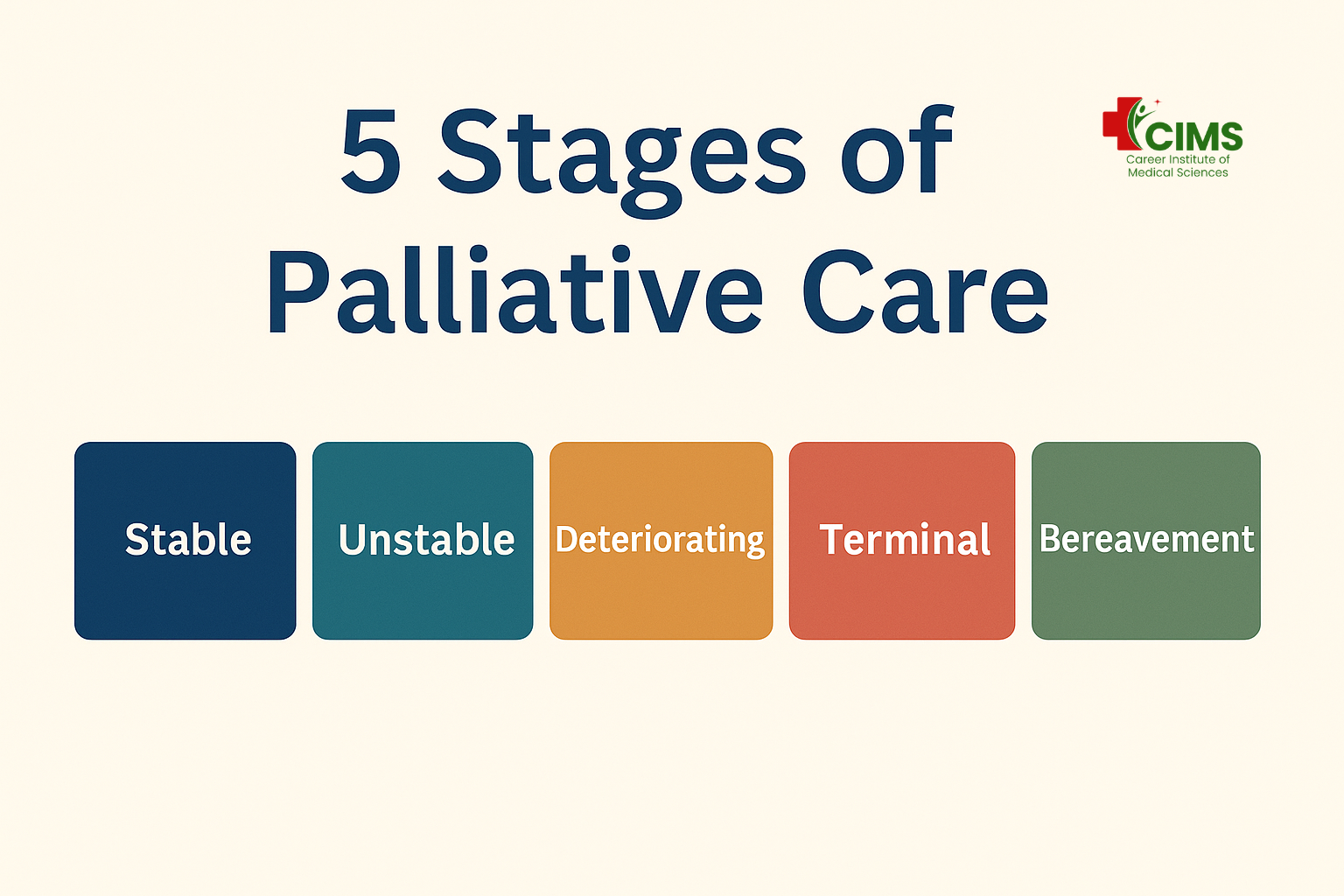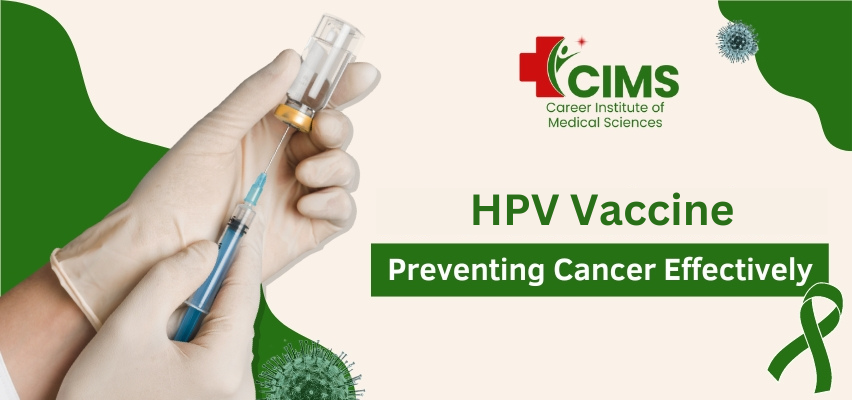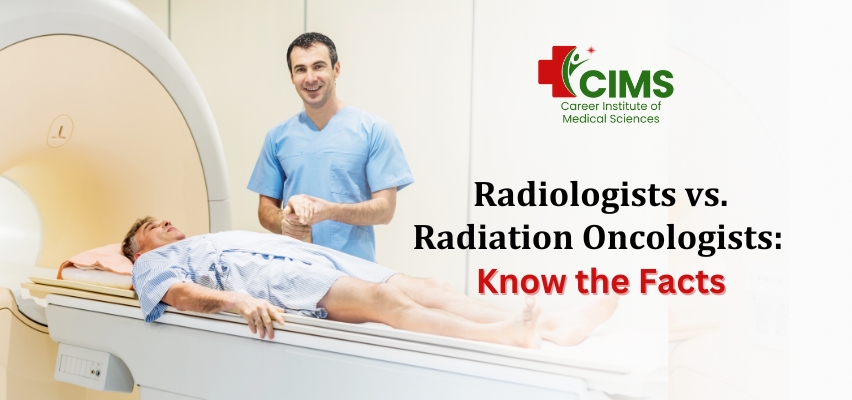Table of Contents
ToggleIntroduction: 5 Stages of Palliative Care
The diagnosis of a serious or life-threatening illness comes with various problems, not limited to medical attention. It also requires attending to the patient’s emotional, social, and even spiritual aspects in order to enhance their quality of life. Palliative care ensures that all these concerns are met. The 5 stages of palliative care provide a well-defined plan for addressing the unique and changing requirements of patients and their families.
The 5 stages of palliative care include:
- Stable
- Unstable
- Deteriorating
- Terminal
- Bereavement
In this blog, we will provide a detailed outline of what is palliative care. And the 5 stages of palliative care, which will be helpful in the serious illness journey.
What is Palliative Care?
Palliative care is an approach that aims to assist people suffering from severe illnesses. It aims to control serious issues such as pain, breathlessness, and fatigue while also providing the necessary psychological attention as well as social and spiritual needs. Support is not only for the patient but also for the family and caregivers who look after the individual during the period of illness.

The Palliative care primary goal focuses on comfort, dignity, the best possible quality of life, and overall well-being for both the patient and family.
5 Stages of Palliative Care – Detailed Overview
Like all other kinds of care, palliative care has been described in five stages according to different phases aligned with a patient’s illness, and those stages set different levels for a patient’s requirements.
1. Stable Stage
“Stable” refers to when a patient’s disease has reached a relatively steady status. The interdisciplinary team draws up a comprehensive treatment plan concentrating on symptom control, nutrition, psychosocial aspects of a patient’s health, patient education, and so forth. The health care team works to empower the patient along with the family to clear their goals and prepare for what lies ahead.
2. Unstable Stage
“Unstable” stage begins at the point where a patient’s symptoms are getting worse or new problems arise. The pre-existing care strategies require urgent revision in order to accommodate these changes. Unstable stage involves additional active treatment for the patient. Along with this, there is an added layer of emotional support not just for the patient but for the family too, which quite often accompanies so much confusion and stress.
3. Deteriorating Stage
The patient’s state declines further as the illness progresses. During the pre-final stage of life, the focus is on comfort and dignity. Together with the family, the care team collaborates with the patient to offer interdisciplinary symptom management, psychosocial and spiritual care, and ensure that the patient’s final days are as comfortable as possible.
4. Terminal Stage
The Terminal stage depicts the last days or hours of life of the patient. The patient and family will require intensive symptom management, rest, and holistic support, integrating caring for the patient’s spirit, emotions, and any end-of-life choices that need to be made. There may be a need for hospice in this stage of care.
5. Bereavement Stage
This stage deals with the family’s emotional and psychological requirements following the patient’s death. To help families cope with loss and adjust to life after a loved one’s death, grief counseling, support groups, and resources are available. This phase highlights that palliative care goes beyond the patient’s life and continues to provide care for those who remain.
It is essential to recognize that the 5 stages of palliative care do not always happen in a sequence. A patient’s condition can change over time, and the care provided needs to be flexible to accommodate these changes.
CIMS Hospital, Bhopal: Offering Holistic Palliative Care
The Career Institute of Medical Sciences (CIMS) Bhopal hospital is focused on providing holistic palliative care, especially for patients suffering from cancer. CIMS is an Ayushman Bharat-empaneled hospital which provides various services aimed at assisting the patients and families throughout the 5 stages of palliative care.
CIMS offers:
- State-of-the-art facility for cancer treatment, radiotherapy, chemotherapy, cancer surgeries, and rehabilitation.
- Balanced palliative care includes symptom treatment, psychosocial support, and care during the final phase of life.
CIMS Bhopal strives to enhance the comfort, dignity, and quality of life for patients, and in doing so becomes a leader of compassionate care for cancer patients and their families.
Conclusion
The 5 stages of palliative care highlight an important framework for managing illnesses at different levels, along with supporting close interaction with family members. This approach integrates basic care and provides a level of comfort that goes beyond the physical to include psychological and social aspects.




As someone who has experienced the challenges of cancer, I found support through the World Rehabilitate Clinic. Their natural approach and nutritional products made a real difference for me. I encourage others to learn more about their health and explore available options.